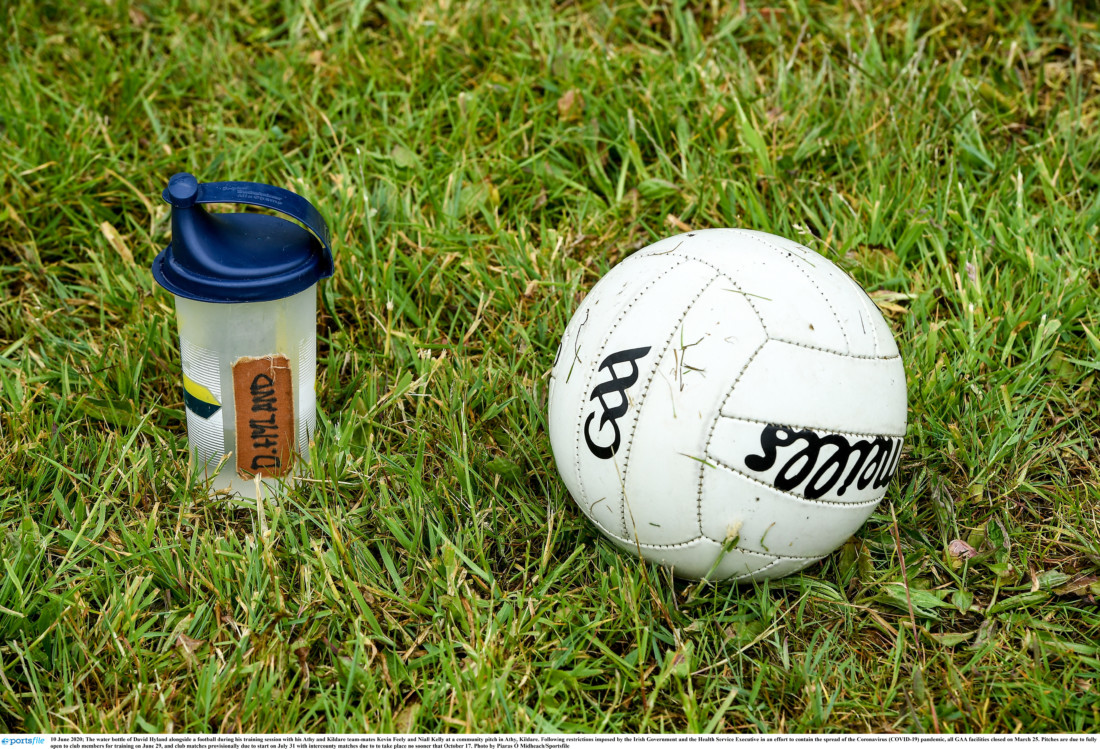SO here we have it, all systems are go. GAA units in the six are back in operation, and whilst not yet at full capacity, it’s good to be back on the sod with teammates.
This week there will be heightened excitement amongst both players and coaches of all ages and grades. Deprived of the team environment interaction for so long, this week has been a release for those young and not so young.
Deprived the ‘opportunity’ of slogging it out in the depths of winter, many players in the twilight of their careers may just believe it’s worth hanging on in there for one last hurrah: the first bee on the windscreen is only weeks away.
Having been held back and shackled for the first quarter of the year it’s going to be interesting to observe the strategies of coaches as to how they approach getting their teams game ready over the coming weeks.
I am a firm believer that coaches need to listen to the views of their players. They are your interface; your actions, strategies, planning all directly affect player performance.
We are all starting from the baseline, and some will transition the journey better than others. Today I want to outline some of my ideas on how both coaches and players alike can get the best from their pre-season schedules.
Coaches
• Periodization is king. Have a plan for how you will gradually up-scale volume. Yes, volume is required but break the players back in gently. The first couple of weeks you want to get players back out enjoying the demands of the game, fitness will develop over time when the correct strategies are implemented and adaptation is allowed to occur.
• Structure – Have you a structure in place for how the group approaches team sessions and indeed their own individual work? Players for the most part like to be led – project where you see the group in four, six, eight weeks. Speak about progressive overload, keep small targets in front of the group along the way with a larger end goal as the season’s destination.
• Communicate – This may seem like a given, but it’s not always carried through. If there are 35 players in a squad it can be hard to directly communicate with all members in every session. Simply by referring to a player’s first name in a drill, you are reassuring that player that you are aware of them and paying heed to their actions. When players feel valued that’s where the team growth occurs.
• Be Vulnerable – There is a perceived notion that as a coach you must know everything about every facet of the game and team preparation. This myth needs to be quickly disregarded. Players can react positively to coach vulnerability; it can act as a bonding agent whereby player and coaches alike know they can make mistakes yet not be castigated.
Players
• Preparation for sessions – You owe it you to turn up prepared. No-one else can do this for you. Mobility, activation, taking necessary medications, strappings, bring your gumshield. Bare basics but crucially important to how you will prepare over a season. Application to the small details wins every time. In this condensed season the race to avoid soft tissue injury is on.
• I am what I eat – nutrition and hydration first came on the radar of club coaches in the late ‘90s and early 2000s. What was once revolutionary is now mundane. But the facts remain, neglect this and you are at a huge disadvantage. Fuel correctly. If you are a player and you are genuinely concerned about this, seek out a nutritionist to help steer you on the right path if there is no guidance here from your club.
• Seek Feedback – Personally speaking, from a coach perspective I love it when a player comes forward seeking feedback on a performance or wants to review their form over a period. This is crucial in player growth. Document your performances, document your preparation in the build-up to games, become accountable. Don’t be afraid to take helpful pointers from a coach looking to steer you in the right direction.
• Be Coachable – Sounds simple but this is difficult for many players to deliver on. Some players can over time develop closed off mindsets. To be better you must be willing to accept that a coach may be able to provide you with the extra tools to help get you to a new level. Listen, observe, ask questions and act.
Receive quality journalism wherever you are, on any device. Keep up to date from the comfort of your own home with a digital subscription.
Any time | Any place | Anywhere












